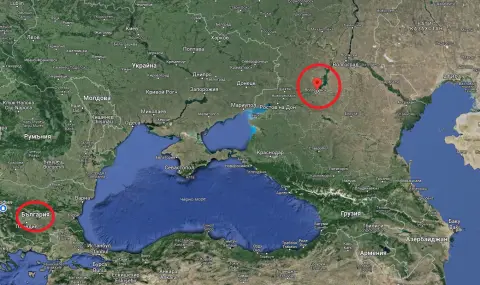Current restrictions have been introduced in the entire Rostov region of Russia for three days. Whole regions in it and cities are without electricity.
The situation started to normalize this morning, but at 12:20 local time restrictions were imposed again.
According to the Ministry of Energy of Russia, the restrictions are due to a shortage of 1.5 gigawatts. (NPP Kozloduy is 2 gigawatts).
Messages on social networks point to the Rostov NPP as the cause.
This commented on "Facebook" Grigor Lilov.
«Now all the power units, except for the third one, which has been undergoing planned and preventive maintenance since June 22, are in the network and are working in full accordance with the dispatcher's task. The equipment works normally. The staff of the NPP understands what responsibility lies in the energy sector today. We are working with the utmost care", - said the chief engineer of the Rostov NPP Andrey Gorbunov.
«The disconnection of electricity in the Rostov region is not related to the operation of the Rostov NPP. The nuclear power plant is currently operating full-time. The disconnection of electricity has started because of the extreme temperatures to avoid the accident in the power system sites" - announced in his Telegram channel the Minister of Industry and Energy of the Rostov Region Andrey Savelev.
There are rumors on local social networks about a serious accident at the Rostov NPP (4 units of 1000 megawatts - 4 gigawatts). It is said to be an ejected radiation cloud. After that, all such messages disappeared, and only refutations of them remained.
It is striking that according to data from the governor's office, the management of the district and the NPP itself, everything is fine and 4 reactors are operating in normal mode. However, according to Rosatom, power unit 3 has been under scheduled maintenance since June 22. So far, I have not found any such messages from previous days for such a repair.
RIA Novosti, citing Rosatom, wrote that one of the power units of the nuclear power plant was shut down in an emergency. The agency reported that the radiation background was normal.
According to the data I gathered, today the power of the NPP is 2,730 megawatts of the normal 4,000 megawatts. I.e. one unit is not working and another is at partial power - at least according to official data. But then the question arises why Russia's unified energy system cannot compensate for this modest shortfall of 1.5 gigawatts.
.According to my information, it is about power unit 1.
On July 16, at 15:21 Moscow time, it was turned off due to an emergency operation of the generator protection. The reactor was probably unloaded at 40% of its capacity. At 22:48 it was connected to the network again and on the morning of July 17 at 05:45 it was loaded.
Due to the panic, the official TASS agency issued a message about a temporary emergency that led to the current regime. But the agency claims that now everything is fine and no radiation cloud is moving towards the million-strong Russian city of Saratov.
However, according to my information (still not reliable), due to the accumulation of hydrogen with the risk of explosion, there was a release of a radioactive cloud into the atmosphere..
I am giving the only photo I found of the area of this NPP showing a plume of steam (radioactive?).
------------------------------------------
The Rostov NPP is located next to the city of Volgodonsk – about 220 km from Rostov-on-Don, which is a city of millions and a port on the Black Sea.
Winds at a height of up to 3 kilometers blow in a southerly direction, with the direction passing through the Rostov Region and the eastern part of the Black Sea.
They do not affect Bulgaria and reach the Black Sea coast of Turkey towards the border in Iran.
Fact: Radiation stations along the Turkish coast have seen a peak, albeit low, in the gamma fund on July 17 – the day after the day the trouble started in Russia. There is also an increase in values in nearby stations in Ukraine - for example, the one in Kursk, Russia
At a higher altitude, the winds are in the north-northeast direction towards Volgograd and Saratov - cities of millions in the central regions of Russia.
The UN Nuclear Energy Agency has no data on a radiation accident
